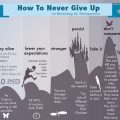Inside the Minds of Startup Founders: Secrets to Their Success
Have you ever wondered what makes startup founders tick? What drives them to take risks, push boundaries, and defy conventions? As someone who’s fascinated by the world of startups, I set out to uncover the secrets behind their success.
After digging deep into the minds of some of the most innovative entrepreneurs out there, I discovered that it’s not just about having a great idea or being in the right place at the right time. It’s about cultivating a unique mindset, one that’s shaped by their experiences, values, and perspectives.
In this article, we’ll delve into the inner workings of startup founders’ minds, exploring the key factors that contribute to their success. From embracing failure to building strong networks, we’ll examine the essential elements that set these entrepreneurs apart from the rest.
A Growth Mindset: The Foundation of Success
Startup founders are notorious for their growth mindset. They believe that their abilities and intelligence can be developed through dedication and hard work. This mindset allows them to approach challenges with a sense of curiosity and experimentation, rather than fear or anxiety.
Take Airbnb’s co-founder, Brian Chesky, for example. In an interview with Entrepreneur Magazine, Chesky revealed that he used to draw inspiration from his childhood experiences of being told “no” by his parents. Instead of letting those rejections hold him back, he learned to view them as opportunities to learn and grow.
This growth mindset is crucial in the fast-paced world of startups, where things don’t always go according to plan. By embracing challenges and seeing failures as stepping stones for growth, startup founders can adapt quickly to changing circumstances and stay focused on their goals.
Resilience: Bouncing Back from Failure
Speaking of failure, it’s no secret that many successful startup founders have experienced their fair share of setbacks. But what sets them apart is their ability to bounce back from those failures with renewed energy and determination.
Consider the story of Steve Jobs, co-founder of Apple. After being fired from his own company in 1985, Jobs went on to found NeXT Computer and Pixar Animation Studios before eventually returning to Apple and leading it to become one of the most valuable companies in the world.
Jobs’ resilience in the face of failure is a testament to the power of persistence and learning from mistakes. By acknowledging that failure is an inevitable part of the entrepreneurial journey, startup founders can develop the grit and determination needed to push through obstacles and stay focused on their vision.
Visionary Thinking: Painting a Picture of the Future
Startup founders are often described as “visionaries” – individuals who have a clear picture of what they want to achieve and how they plan to get there. This ability to think critically about the future is essential in identifying opportunities, anticipating challenges, and making informed decisions.
Take Elon Musk, for instance. As CEO of SpaceX and Tesla, Musk has demonstrated an unparalleled ability to envision and shape the future of transportation and space exploration. His ambitious goals, such as establishing a human settlement on Mars or revolutionizing electric cars, are testaments to his visionary thinking.
By having a clear vision of what they want to achieve, startup founders can inspire and motivate their teams, attract investors, and make strategic decisions that align with their long-term objectives.
Networking: Building Relationships That Matter
No startup founder is an island. Behind every successful entrepreneur lies a network of mentors, peers, and partners who provide support, guidance, and opportunities for growth.
Take Reid Hoffman, co-founder of LinkedIn, as an example. Hoffman has spoken extensively about the importance of networking in his career, citing relationships with influencers like Peter Thiel and Max Levchin as key factors in his success.
By building strong networks, startup founders can gain access to valuable advice, resources, and connections that help them navigate challenges and capitalize on opportunities. Whether it’s attending conferences, joining online forums, or simply reaching out to people they admire, entrepreneurs who prioritize networking are more likely to achieve their goals.
Adaptability: Pivoting in Response to Change
The startup landscape is constantly shifting, with new technologies emerging, markets evolving, and consumer preferences changing at breakneck speed. To succeed, founders must be agile and adaptable, willing to pivot when circumstances demand it.
Take the story of Instagram’s co-founder, Kevin Systrom, who initially developed a location-based app called Burbn before pivoting to focus on photo-sharing after realizing that was where user engagement lay.
By staying attuned to their environment and being open to change, startup founders can make data-driven decisions that help them stay ahead of the curve. Whether it’s adjusting product features, shifting marketing strategies, or expanding into new markets, adaptability is a critical trait for entrepreneurs looking to thrive in today’s fast-paced business landscape.
Passion: The Fuel That Drives Success
Last but certainly not least, startup founders are driven by an unrelenting passion for their work. It’s this passion that fuels their creativity, perseverance, and resilience – essential qualities for overcoming the countless obstacles they’ll face on their entrepreneurial journey.
Take Sara Blakely, founder of Spanx, who was turned down by numerous manufacturers before finally landing a meeting with a representative from Neiman Marcus. Her unwavering dedication to her vision eventually led to her product being featured in the iconic department store’s catalog.
By staying true to their passions and values, startup founders can create products or services that genuinely improve people’s lives, build loyal followings, and attract top talent to their teams.
Conclusion
Startup founders are a unique breed of entrepreneurs who have cultivated a distinct mindset that sets them apart from the rest. By embracing failure, building strong networks, thinking critically about the future, pivoting in response to change, and staying true to their passions, these innovators are able to achieve remarkable success in today’s fast-paced business landscape.
As you embark on your own entrepreneurial journey, remember that it’s not just about having a great idea or being in the right place at the right time. It’s about cultivating a mindset that allows you to adapt, innovate, and persevere – even when the going gets tough.
So go ahead, take a page out of the startup founder’s playbook. Develop a growth mindset, build your network, and stay true to your passions. The world is waiting for your next big idea!









